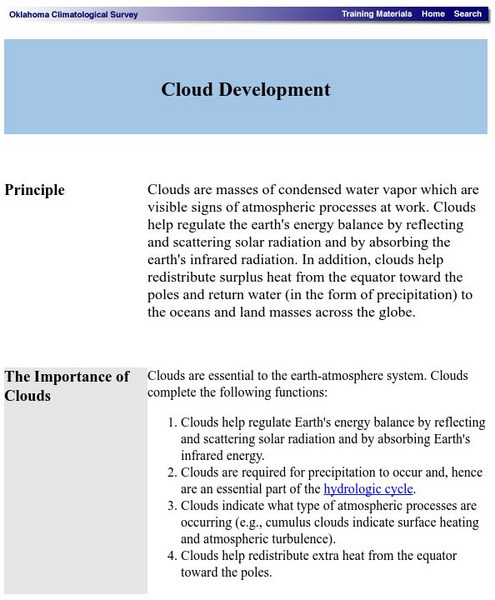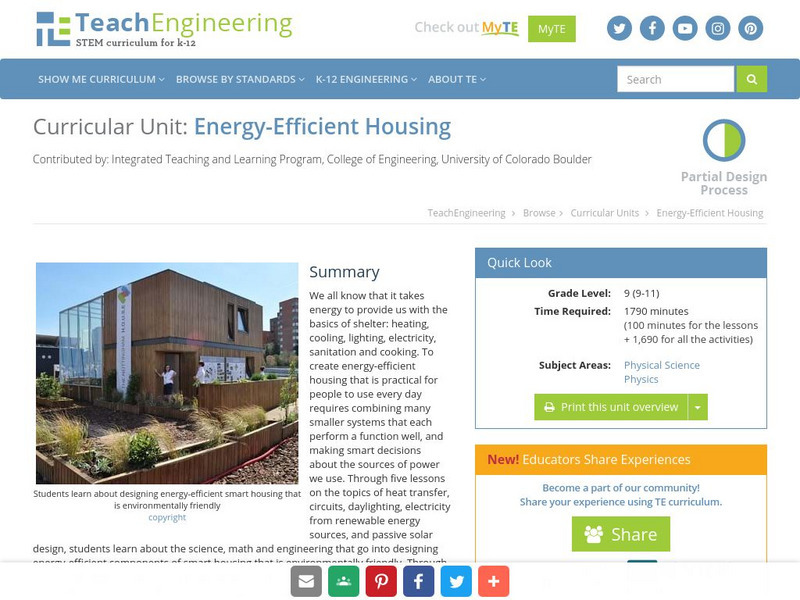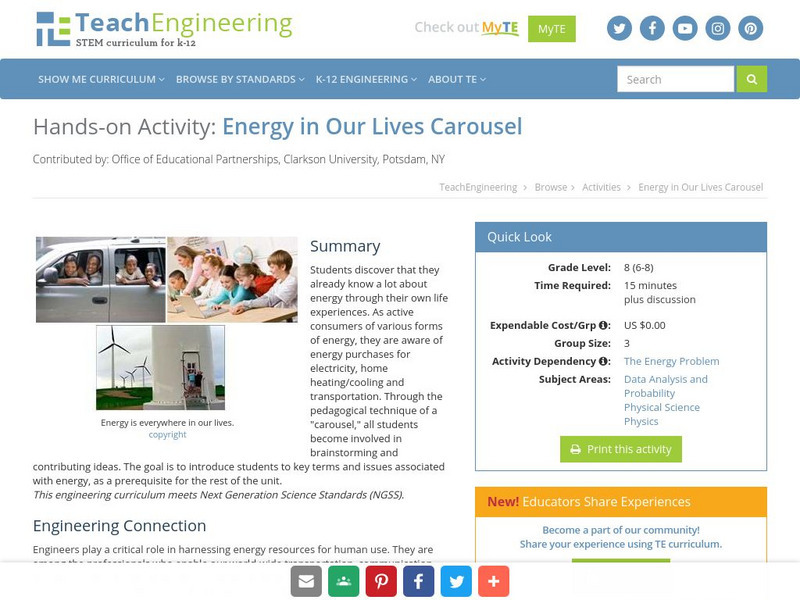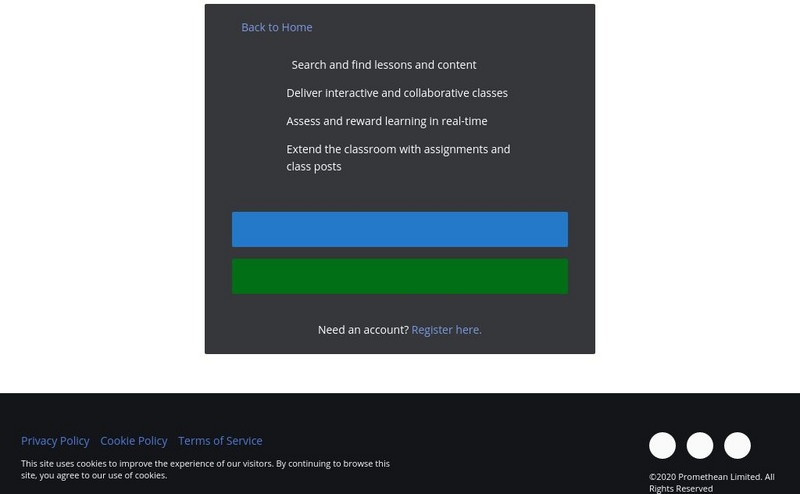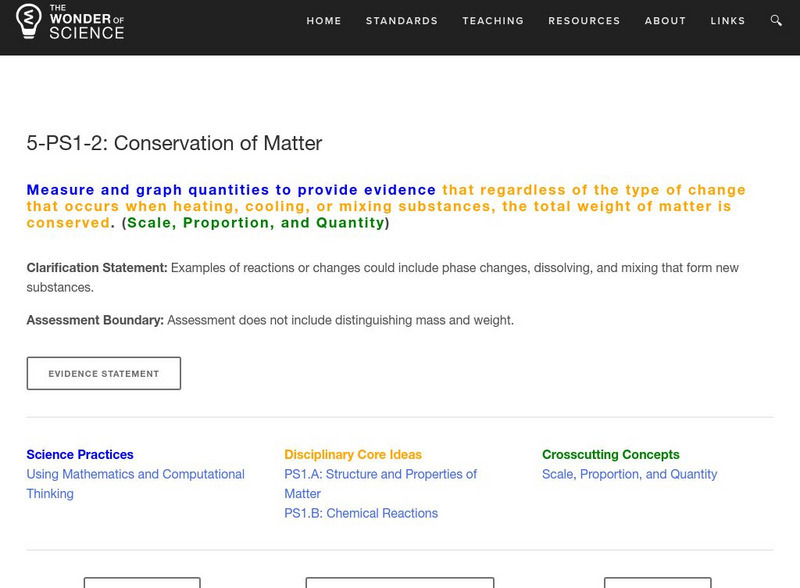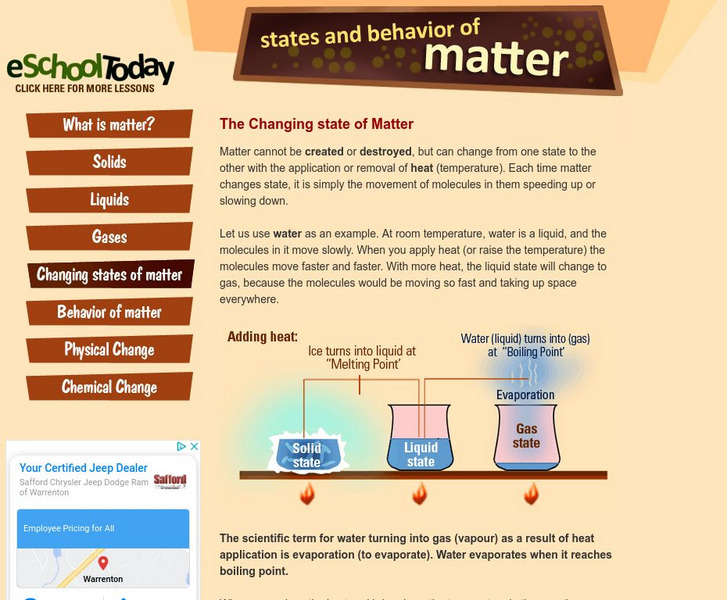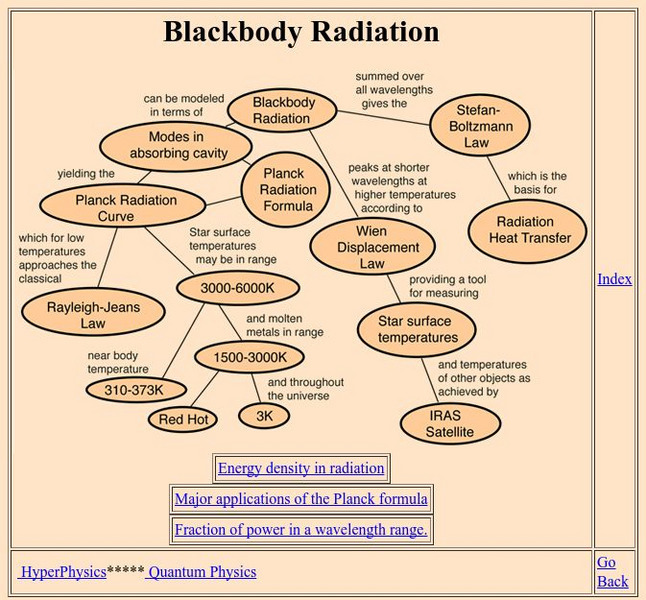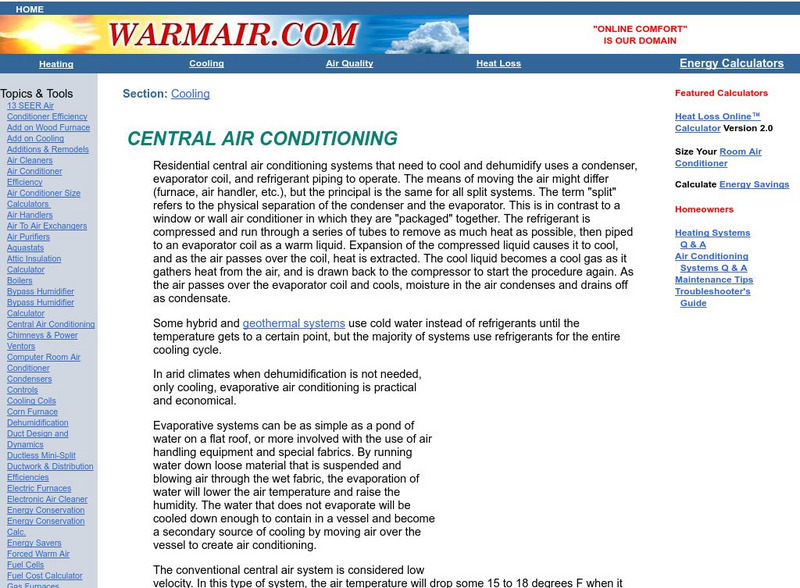State Energy Conservation Office-Texas
State Energy Conservation Office: Renewable Energy Guide for Buildings [Pdf]
A basic guide for ways to be more energy-efficient and to use more renewable energy sources in a building. These include methods of reducing heat or cool air loss, ways of harnessing solar energy, and using the wind for ventilation.
ClassFlow
Class Flow: States of Matter
[Free Registration/Login Required] This flipchart describes the 3 states of matter and how materials can change through heating and cooling.
Other
Applied Thermodynamics: Heat Transfer
Heat transfer, rates of heat exchange,conduction, radiation and convection are defined and discussed at this site from Applied Thermodynamics. Well illustrated.
American Chemical Society
Middle School Chemistry: The Ups and Downs of Thermometers
See how thermometers measure temperature by the molecular movement of the liquid inside.
Oklahoma Mesonet
Oklahoma Climatological Survey: Cloud Development
This site explores the importance of clouds and how clouds are formed. Content details common atmospheric cooling mechanisms and atmospheric stability.
TeachEngineering
Teach Engineering: Energy Efficient Housing
We all know that it takes energy to provide us with the basics of shelter: heating, cooling, lighting, electricity, sanitation and cooking. To create energy-efficient housing that is practical for people to use every day requires...
TeachEngineering
Teach Engineering: Energy in Our Lives Carousel
This activity is a way for students to discover that they already know a lot about energy through their own life experiences. As active consumers of various forms of energy, they are aware of energy purchases for electricity, home...
ClassFlow
Class Flow: Keeping Warm
[Free Registration/Login Required] Through this unit children build their ideas about temperature as a measure of how hot or cold objects are and learn about thermal insulators as materials that can help to keep things warm or cool.
MadSci Network
Msn: How Does an Air Conditioner or Refrigerator Work?
From the Mad Scientist Network. Using a question and answer format, this page explains the answer to the question "How does An air conditioner or refrigerator work?" The scientific principles which underly their operation and the process...
The Wonder of Science
The Wonder of Science: 5 Ps1 2: Conservation of Matter
On this site, find a variety of materials to help students understand the conservation of matter. Create lessons that allow students to measure and graph quantities that could show even if matter is heated, cooled or combined with other...
National High Magnetic Field Laboratory
Magnet Academy: Jean Charles Athanase Peltier (1785 1845)
Although he didn't start studying physics until he retired from the clock-making business at age 30, French native Jean Peltier made immense contributions to science that still reverberate today. Even with the primitive tools available...
eSchool Today
E School Today: The Changing State of Matter
Learn about the changing states of matter.
University Corporation for Atmospheric Research
Ucar: Bubbles on Bottles
Students observe that a change in the temperature of air can impact the size of a bubble placed on a bottle that is cooled and/or heated.
CK-12 Foundation
Ck 12: Fifth Grade Science: Physical Science: Chemical Properties of Matter
A module that provides the definition of chemical property and examples of the chemical properties of matter using explanations, pictures, and review questions.
Georgia State University
Georgia State University: Hyper Physics: Blackbody Radiation
An indexing page for the HyperPhysics site. This page includes a concept map of links to pages that contain information related to blackbody radiation. Each individual page consists of informative graphics and clear explanations.
BBC
Bb Ci Schools: Revisewise Science: Solids, Liquids, Gases
This site contains an interactive activity in which students can learn about the three states of matter. There is also a factsheet that lists numerous properties of liquids, solids, and gases. The factsheet also uses water as an example...
PBS
Pbs Teachers: Daredevil Ball Jump Ii Experiment
Make alterations in the variables of the original ZOOM Daredevil Ball Jump activity by heating or cooling the balls in the experiment. Predict how the balls' bounces will be affected by hot and cold, test the predictions and record the...
Other
Solar Cooking Archive
This website is brought to you by Solar Cookers International. You can view the site in English, German, Spanish, French, Italian and Portuguese. Check out how to build different types of solar cookers.
SMART Technologies
Smart: States of Matter
This review of matter includes properties, volume, length, mass, and states of matter. Activities, games, and a Monster Quiz are include.
Other
Warm Air: Central Air Conditioning
The operation of conventional air conditioners are described. Their parts and the refrigerant/heat exchange cycle is discussed. The use of alternative geothermal systems are explained.
University of Colorado
University of Colorado: Ph Et Interactive Simulations: University of Colorado: States of Matter: Basics
An interactive simulation will heat, cool and compress atoms and molecules. Watch as they change between solid, liquid and gas phases. Recognize that different substances have different properties which will affect the temperatures for...
OpenSciEd
Open Sci Ed: 6.2 Thermal Energy Teacher Professional Development Overview
This four-day professional development session introduces teachers to the OpenSciEd materials generally in addition to the 6.2 Thermal Energy unit.
Curated OER
Warm Air: Central Air Conditioning
The operation of conventional air conditioners are described. Their parts and the refrigerant/heat exchange cycle is discussed. The use of alternative geothermal systems are explained.
Curated OER
Educational Technology Clearinghouse: Maps Etc: Summer Monsoon in India, 1910
A map from 1910 of the Indian subcontinent and the Central Asia region showing the typical rainfall distribution patterns during the summer monsoons, keyed to show areas of rainfall ranging from very light to, according to this text, the...
![State Energy Conservation Office: Renewable Energy Guide for Buildings [Pdf] Handout State Energy Conservation Office: Renewable Energy Guide for Buildings [Pdf] Handout](https://static.lp.lexp.cloud/images/attachment_defaults/resource/large/FPO-knovation.png)


